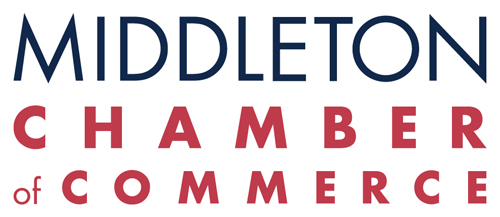From Conflict to Collaboration: Turning Workplace Disputes into Growth Opportunities
Workplace conflicts are inevitable—but they don’t have to be toxic. Great leaders turn disagreements into collaboration opportunities. This article covers: Communication frameworks that promote understanding Mediation techniques to defuse tension Strategies for creating win-win solutions Handled well, conflict strengthens teams and sparks innovation. Let’s turn friction into progress. 527 words ~ 2.5 min.
Kate Miller
Mastering Emotional Agility: A Vital Leadership Skill for Modern Workplaces
Why it matters: Leaders equipped with emotional agility can adapt to challenges, manage stress, and foster stronger team dynamics. In today’s fast-paced workplace, emotional agility isn’t just a "soft skill"—it’s a critical leadership tool. Key takeaway: Cultivating emotional agility involves acknowledging emotions without being controlled by them, aligning actions with values, and creating a culture of openness and resilience. 540 words ~ 2.5 min.
Kate Miller
The Art of Giving Feedback That Inspires Instead of Discourages
Delivering constructive feedback is vital for team growth and morale. Effective feedback should be specific, timely, and focused on behaviors rather than personal attributes. Utilizing the "sandwich" approach — starting with positive feedback, addressing areas for improvement, and concluding with encouragement — can enhance receptivity. Empathy and active listening are crucial in fostering a supportive environment that encourages open dialogue and continuous development. 621 ~ 3 min. read
Kate Miller
Five Strategies for Leading Through Emotionally Charged Times
In emotionally charged times, strong leaders adopt flexible strategies to help teams stay focused and grounded. Here are five ways leaders can support employees through change and uncertainty — or any time outside events disrupt the workplace. 473 ~ 2 min. read
Kate Miller
7 Key Lessons on Leading Without Formal Authority
Leadership isn’t about titles or authority—it’s about influence. In How to Lead When You're Not in Charge, authors Clay Scroggins and Andy Stanley show how to lead by building trust, cultivating self-discipline, and communicating effectively. With lessons on staying proactive, fostering relationships, and embracing a servant mindset, Scroggins and Stanley provide a roadmap to leading powerfully from any position. Read on to learn seven pivotal lessons discussed in their book. 486 words ~ 2 min. read
Kate Miller
Transforming Employee Feedback into Actionable Insights: A Leader’s Guide
To manage employee experience effectively, leaders must turn data into action. Gathering feedback is easy; interpreting it to meet employee needs is the challenge. Leaders should focus on synthesizing insights from feedback tools into a clear, strategic response.
Kate Miller
Five Mindset Shifts to Help Leaders Embrace Self-Care
Leaders often struggle with self-care, but adopting these five mindset shifts can change that. Start by creating a body budget, manage emotional health, identify choice points, and prioritize growth and nourishment. Regular practice of a personalized plan ensures long-term success. 458 words ~ 2 min. read
Kate Miller
Why Addressing Team Issues Often Backfires — And How to Avoid the Trap
Raising concerns about your team's dynamics can backfire, turning the conversation against you instead of addressing the issue. This defensive response often happens because the message feels like a personal attack. Here’s how to handle it effectively: focus on the issue, not the people, use empathy, and avoid accusatory language to keep the team’s attention on the problem. 577 words ~2.5 min. read
Kate Miller
Navigating the Uncertainty of New Ideas: Building Consensus in the Workplace
Innovation is crucial for competitive advantage, but new ideas often face resistance due to differing perceptions and a lack of shared evaluation standards among decision-makers. Research shows that novel ideas encounter increased perceived risk when team members have varying opinions on their value, leading to reduced support. Establishing shared criteria for evaluating new ideas can reduce subjectivity, facilitate constructive discussions, and align teams toward common goals. Clear evaluation frameworks
Kate Miller
Preventing Ethical Burnout: Protecting Your Team's Integrity Under Pressure
Ethical burnout can occur when workplace stress affects employees' ability to uphold their values, making it crucial for leaders to recognize and address this issue. Rising commercial pressures can lead to ethical lapses; leaders should set realistic goals and promote open communication to prevent this. Creating a culture of psychological safety helps combat "survival mode" thinking, allowing employees to focus on integrity rather than self-preservation. Decision fatigue in high-pressure environments can
Kate Miller

.png)
.png)
.png)
.png)
.png)
.png)
.png)
.png)
.png)
.png)
